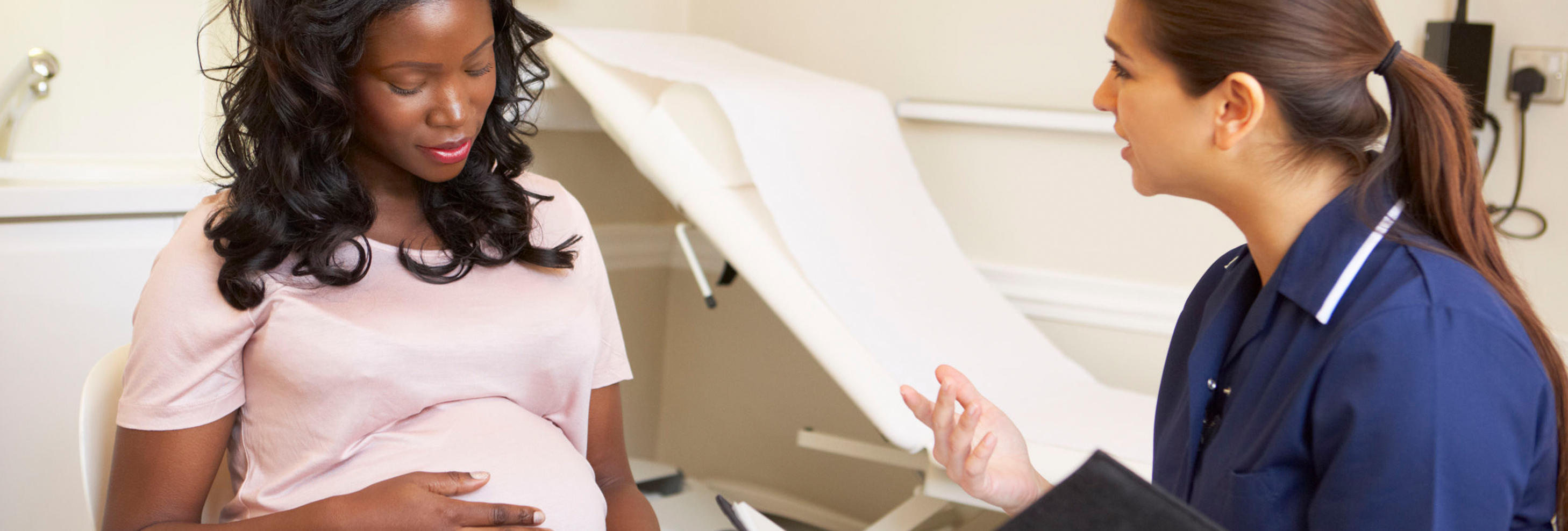UCLan researchers are working with Lancashire and South Cumbria Maternity Transformation Programme to advance culturally sensitive maternity care
Local women from ethnic minority groups who have given birth in the last two years are being asked to share their maternity care experiences to improve services provision.
The Lancashire and South Cumbria Maternity and Newborn Alliance is working with researchers from the University of Central Lancashire (UCLan) to conduct an online anonymous survey, as well as collecting information via community and faith-based groups.
The results of this work will shape future antenatal and postpartum care for ethnic minority women in Lancashire and South Cumbria.
The study is specifically targeted at women, over the age of 18, who are from an ethnic minority group and have given birth in Lancashire or South Cumbria since January 2019.
"Women from ethnic minority backgrounds tend to have poorer experiences and outcomes during and after childbirth compared to women who are White British, and the care they receive often does not meet their cultural needs."
— Professor in Perinatal Health at UCLan Gill Thomson
By working with these specific groups of women, the Lancashire and South Cumbria Maternity and Newborn Alliance aims to develop strong guidelines around delivering culturally sensitive maternity care and reduce existing inequalities.
Gill Thomson, Professor in Perinatal Health at UCLan, is leading the project.
She said: “Women from ethnic minority backgrounds tend to have poorer experiences and outcomes during and after childbirth compared to women who are White British, and the care they receive often does not meet their cultural needs.
“This may be because of language barriers, cultural stereotyping, feeling ostracised by the community because of perceived taboos around pregnancy and mental health support or just not feeling like they can access the support they need.
“Through this study, we aim to learn from personal experiences and use the evidence to develop training that increases knowledge and skills and ensures appropriate attitudes and behaviours of professionals in order to provide culturally safe maternity care and mental health support for ethnic minority women.”
"All women need access to care that can be personalised to her own individual needs, which means understanding the experiences women have had within our services to enable Trusts to develop services which are able to meet the bespoke needs of all women accessing maternity care."
— Coralie Rogers, Lead Midwife for Digital and Achieving Equity
Coralie Rogers, Lead Midwife for Digital and Achieving Equity, said: “In line with the findings of the national maternity review, it is important to offer high quality and safe care to all women.
“All women need access to care that can be personalised to her own individual needs, which means understanding the experiences women have had within our services to enable Trusts to develop services which are able to meet the bespoke needs of all women accessing maternity care.”
Lancashire and South Cumbria Maternity and Newborn Alliance Project Manager Joanne Dorrity said: “The wider Maternity and Newborn Alliance programme for Lancashire and South Cumbria is dedicated to adopting a process of co-production and proportional universalism to ensure that all women receive the input from care professionals they need to enable the best possible outcomes.
“We also promise to ensure we have a sustainable network to continue to feed the voices of these cohorts and their experience back into services to continually review services and improvement.”
A pregnant South Asian mother who has already contributed to the study said: “It is so important that women from ethnic minority backgrounds are listened to. We should feel comfortable accessing maternity services knowing that we will be treated with respect and heard.
“We just want to be treated fairly and to feel safe. Many of us are aware of the increased complications women from our backgrounds experience when pregnant and in labour and our experiences need to be taken seriously to ensure the safety of both mother and child.”
"It is so important that women from ethnic minority backgrounds are listened to. We should feel comfortable accessing maternity services knowing that we will be treated with respect and heard."
— A pregnant South Asian mother who has already contributed to the study
The Trusts and/or hospitals where women need to have received their care are:
University Hospitals of Morecambe Bay
- Helme Chase, Westmorland General Hospital – Birth Centre
- Royal Lancaster Infirmary – Central Delivery Suite
- South Lakes Birth Centre, Furness General Hospital – Birth Centre
East Lancashire Hospital Trust
- Lancashire Women and Newborn Centre – Burnley
- Burnley General Teaching Hospital - Central Birth Suite
- Burnley Birth Centre
- Blackburn Birth Centre
- Rossendale Birth Centre
Blackpool Teaching Hospitals NHS Trust
- Blackpool Victoria Hospital - Delivery Suite
- Fylde Coast Birth Centre
Lancashire Teaching Hospitals NHS Trust
- Royal Preston Hospital, Sharoe Green – Delivery Suite
- Royal Preston Hospital, Sharoe Green – Birth Centre
- Chorley Birth Centre
The anonymous survey is available until June and can accessed online in seven different languages (Urdu, Punjabi, Gujarati, Polish, Romanian and Arabic).
Community groups/leaders who would be willing to help collect information from women about their maternity care and experiences, as well as anyone wanting further information about the project, are asked to contact the research team at GThomson@uclan.ac.uk, RJassat@uclan.ac.uk or JCook11@uclan.ac.uk.

